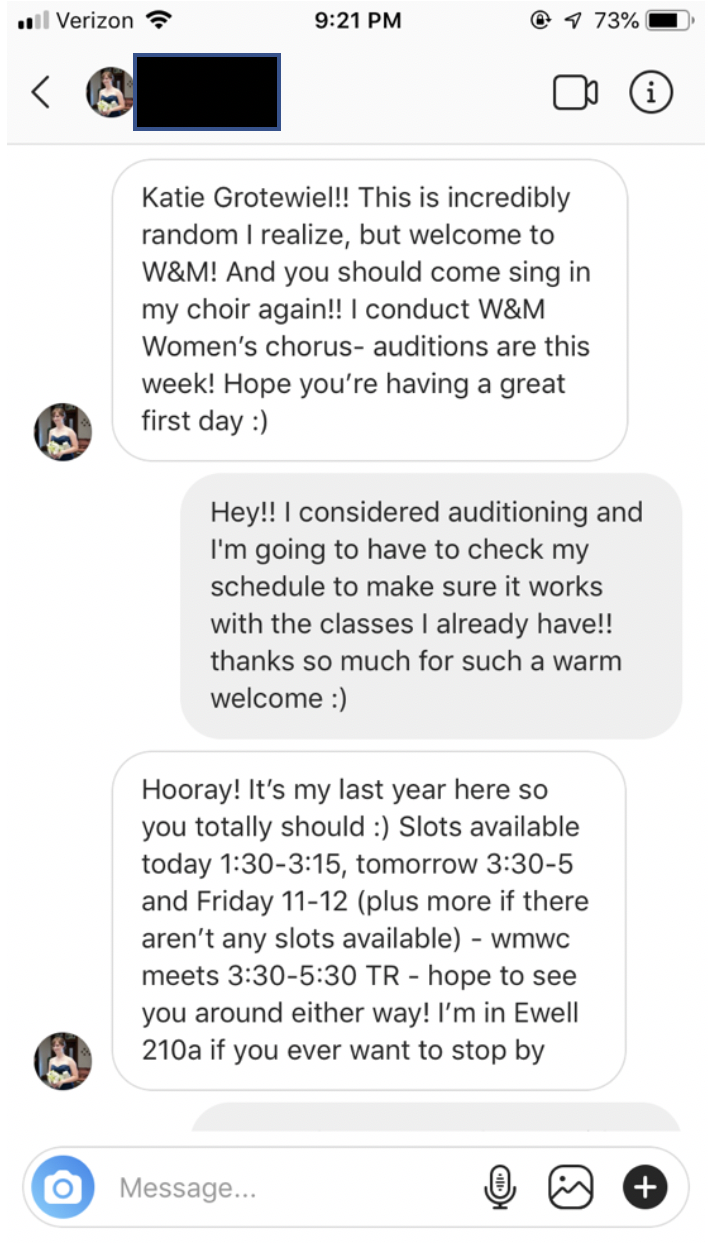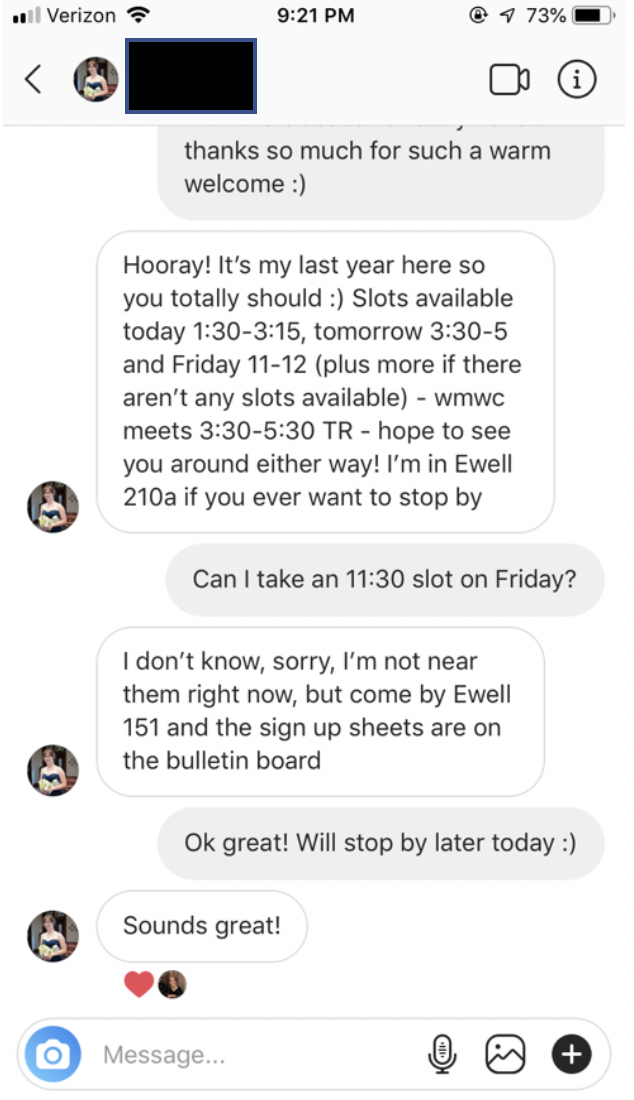Picture this: ten-year-old me, walking across a very large field with a woman I’d just met. She’s in her late twenties and she has curly, light brown hair. The woman, named Sarah Frook, would be my new choir teacher. I don’t remember what Ms. Frook or I wore or what time we met, but I do remember that I sang “Spirits” as my audition piece, a song with its text taken from A Midsummer Night’s Dream. I remember still how the piece goes.
I sat in Ms. Frook’s choir and took her music classes through seventh grade. In eighth grade, she taught me privately at the University of Richmond. After eighth grade, we lost touch. I didn’t hear from her for another four years.
The summer before I started at William & Mary, I found myself in a “Choir Kids of W&M ‘22” GroupMe. The group talked about the audition process for the three choirs and one of my now good friends Charlie Westhoff sent a screenshot of the choir website and the audition information.
The director for the William & Mary Women’s Chorus: Sarah Frook Gallo.
She must’ve gotten married, I thought to myself. I wondered how much I’d missed from her life in the last four years. I started looking up videos of her directing, and I found footage of her at Christopher Newport University and various district choruses. She’d cut her hair and it really suited her.
I debated whether I should audition for her chorus. Would it seem like an academic version of nepotism if she took me into her chorus? Would that be ethical? And would she think I had enough talent to sing for her anymore? (Although, I did figure that any poor technique could be blamed on her since she trained me for four years.) All of those fears and worries left on August 29, 2018. Of all things, I received an Instagram DM from Professor Gallo asking me to audition for her.


At first, I laughed; I’d forgotten that she followed my Instagram. And then I thought, “Oh, no, she follows my Instagram.”
Once I’d recovered from that revelation, I responded and told her I’d look into it. She explained that she wouldn’t be directing the Chorus after that year, so I decided within myself that I had to audition. At my audition, she greeted me with one of the warmest hugs I’ve received. Within the next week, I became one of the newest singers in the William & Mary Women’s Chorus.
One thing changed drastically: my voice part. Throughout middle school and high school, I’d always been a Soprano II. On this year’s roster, however, she listed me as an Alto II. New territory for me, I didn’t even know I could hit some of the notes in the Alto II range that I ended up being able to.
Professor Gallo handed out our new music at the first rehearsal. Women composed each piece we performed, and our semester’s works overflowed with messages of freedom and comfort and opportunity. One piece in particular, “Truth” by Andrea Ramsey, spoke of finding your roots in nature and where you came from as well as finding a home within your own body. All the pieces she chose truly resonated with the experience of every single singer in our chorus.
As the year progressed, we learned approximately twenty new pieces, performed countless times and learned more about ourselves through the pieces so expertly chosen by our director.
On tour in the spring, Professor Gallo sat down at a table with me and my friends, and she and I reminisced on our days with the middle school choir. I told her that every once in a while, “Seize the Day” from Newsies would come up on my Spotify queue and I’d remember when we sang that in her choir. She then told me that she had a picture of the two of us from that time somewhere, and she swore she’d give it to me soon.
At the end of the year came the senior sendoff, with Professor Gallo as an honorary senior. She’s beginning her doctoral study in conducting at the University of Georgia in Athens. We presented her with a photo book filled with notes from the singers. In my note, I wrote about a memory I had from her seventh-grade music history class:
A girl in the class asked, “What if we can’t sing?”
The then Ms. Frook responded with, “Everyone can sing. Some should not.”
Throughout my entire middle school and through my first year of college, Professor Gallo taught me that I should use my voice. Whether for purely musical reasons or for a greater cause, she wanted me to use my voice. I intend to speak and sing for as long as I can, and I credit Professor Sarah Frook Gallo with that mission.



















